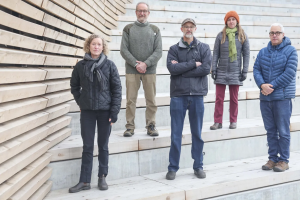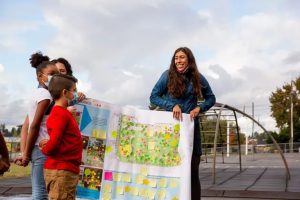Lynda V. Mapes · Seattle Times · February 17, 2025
Featuring multiple members of the Nature and Health Steering Committee and Research Collaborative

After President Donald Trump canceled a report on the state of nature in the United States, the scientists working on it — many from the Seattle area — say they’ll continue their work and build on it.
The report, announced by President Joe Biden during a visit to Seattle’s Seward Park on Earth Day in 2022, was intended to be the country’s first nationwide assessment of the state of nature.
In all, more than 150 scientists were at work on the assessment across the country — and they had nearly completed the first draft of their work. Then Phil Levin, professor of practice in the University of Washington College of the Environment, and the national director for the report, was informed shortly after Trump took office that the assessment was being terminated.
 In this podcast,
In this podcast, 




